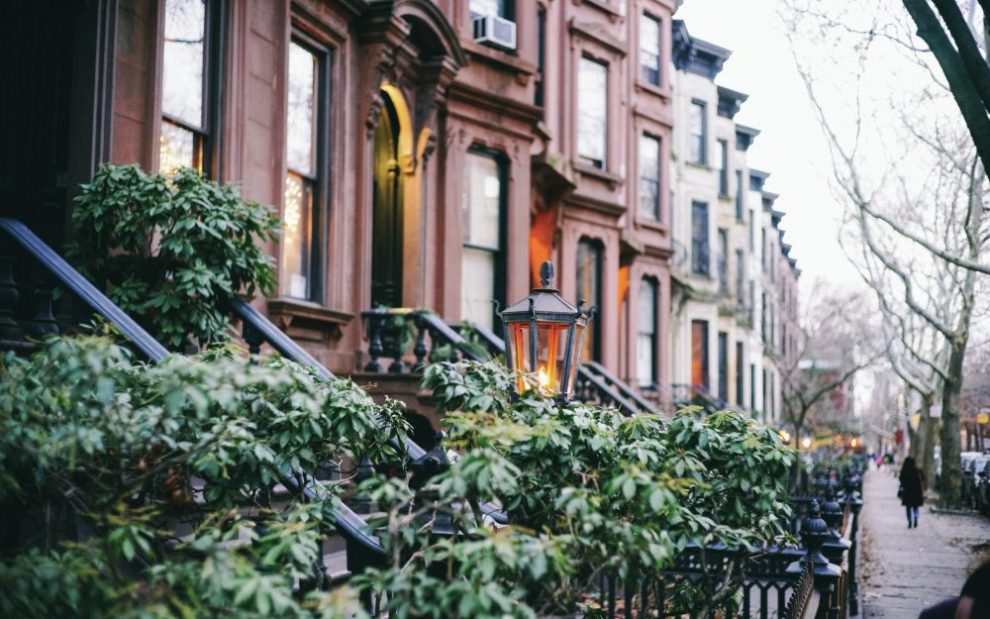There’s no place like home, Dorothy repeats like a mantra. She clicks the heels of her magic shoes until she opens her eyes to find herself in the land of her dreams once more. Who knew it would turn out to be Kansas? Dorothy’s wild adolescent heart had sent her roving through new worlds and on astonishing adventures. She’d met a gracious spirit, a talking tree, a bogus wizard, and a deadly foe. She even made three unforgettable friends. But in the end Dorothy discovers that home is where her heart most longs to be. Familiar faces are the ones she’d been seeking all along.
Home has this kind of magnetic authority over us. While some of us are glad to travel far and wide, homecoming is always welcome: back to our own beds, clean clothes, and established routines. We return to the place where our net of relationships will catch us. We come home to where our possessions are, those knickknacks and keepsakes that remind us what life has been about so far. When we come home, in a way, we return to ourselves.
Because home is so vital to our sense of security and self-understanding, the church recommends a ritual of home blessing every year on the feast of Epiphany. In the little town where I grew up, our pastor would come to each parishioner’s house and mark in chalk the front door lintel with the date of the new year, connected with and encased by crosses. Gradually the markings would wear away, but in the meantime we were reminded that all our comings and goings were blessed. Something was expected of us when we exited into the world beyond that door. And something else was expected when we resumed our lives together under that roof.
Home is a sacred place, not just a space to store our stuff. Home reveals something about us. It doesn’t matter whether we’re homeowners, apartment dwellers, or RV park denizens. Carl Jung viewed the living space as a model of the mind. Is yours organized or cluttered, spare or burdened, clean or carelessly kept? Does the space you inhabit function, or is it a mess of abandoned tasks and lost items?
What we keep around us are containers of meaning, according to Edwin Heathcote, an architectural commentator who has made a livelihood decoding the messages inherent in our environments. It’s not just the diaries, photographs, and bookshelves that record our journeys. Everything in our personal space announces where we’ve been and what we’ve deemed worth preserving.
The home is a vessel of our history. In the writings of Cicero, it even functions as a “memory palace” that can serve as an infinite mental storage unit. The bond between our home and our brain is so acute that we can memorize huge amounts of data by mentally storing it in different rooms of an interior so-called memory palace modeled on actual rooms we’ve inhabited. Science documents that the reason we so frequently forget what we were looking for when we pass from room to room in our homes is the very act of passing through a doorway. Each threshold literally moves us into a different mental space—and alas, whatever drove us there falls away until we (sometimes literally) retrace our steps and remember what we came for.
Where we live and who we become are intimately connected. Consider the violence it does to the elderly when they’re removed from their homes and possessions and placed in some anonymous new space. The three dimensions of space and the fourth dimension of time are combined in a unique way in the rooms that encompass us. That’s not something that easily transplants. While I’ve moved many times to different parts of the country, I have rituals of return that I practice in each new space that becomes home for me. For example, when I was young and my belongings were few, I would unpack them all at once and put them in as near a proximation to the old positions as possible. I wouldn’t go to bed the first night until all my old pictures were nailed to the new walls.
What features of a home need consecrating, and how might you bless yours?
That’s no longer possible, since I can no longer fit everything I own into three suitcases and the back of a car. But I still recreate spaces that worked well in the past to encourage finding necessary items expediently. Jung is onto something when he calls the house an externalization of the self. It explains why some of us spend our lives seeking the dream house and why successful horror movies capitalize on the haunted house. It’s why some swear by feng shui, designing a building or organizing a room to create the most beneficial flow of energy and traffic. We want our spaces to succeed in their purpose because we want our time in these places to be peaceful, productive, and safe.
The ancients were convinced that evil spirits were always attempting to infiltrate their homes. This way of thinking is reflected in the parable Jesus tells about a man with a demon in his house, which leaves only to return with seven more: the last condition being worse than the first. To avoid this fate, homes were designed with doorways facing the rising sun. This encouraged the first rays of light to banish creatures of darkness. Raised doorsills were invented as a means to trip up demons. Even today, the threshold of our homes remains a place of encounter and decision. Do we open the door to that unknown fellow with the clipboard or not? Are we home to the neighbor who promises to stay for a minute and is still talking our ear off an hour later? If you watch vampire movies, you probably know the undead can’t enter the dwelling of the living unless invited in. But once in, they can’t be shut out no matter what. The threshold is still a place for us to choose cautiously, whether it’s Aunt Mildred or someone you used to date on the other side of the peephole.
Rituals of entry remain with us too. The doorbell rings and so begins a series of greetings or refusals, handshakes or hugs. We enter a church and dip our fingers into the holy water font for a blessing. From the watchtower, the sentinel asks, “Who goes there?” and you better have an acceptable answer or your life is at stake. Threshold denotes territory, and territory defines belonging. Our country is currently reexamining the way our national boundaries function. Do we need to lower our threshold of entry or raise it?
This brings us back to the significance of home and the rituals we need to bless and sustain it. What features of a home need consecrating, and how might you bless yours? The main doorway deserves a blessing, considering all the comings and goings it keeps vigil over. Windows reveal the world outside, yet at the same time they limit our perspective. Bless them for their reminder of the seen and unseen. The rooms we use to seek our rest, the kitchen from which meals emerge, the home office or study corner where we labor: What might we say to acknowledge these holy sites? Perhaps each family member might present an object that has meaning for them for special blessing. And don’t forget to bless the table where we gather together for food and sharing, nourishing body and soul.
This article also appears in the January 2022 issue of U.S. Catholic (Vol. 87, No. 1, pages 47-49). Click here to subscribe to the magazine.
Image: Unsplash/Josh Wilburne
















Add comment